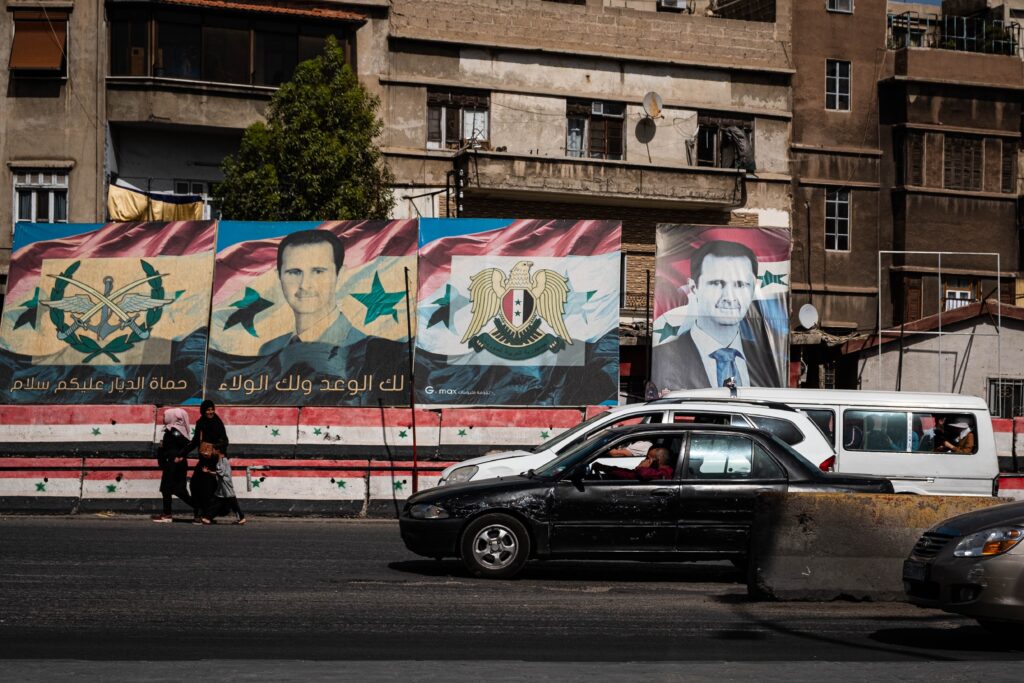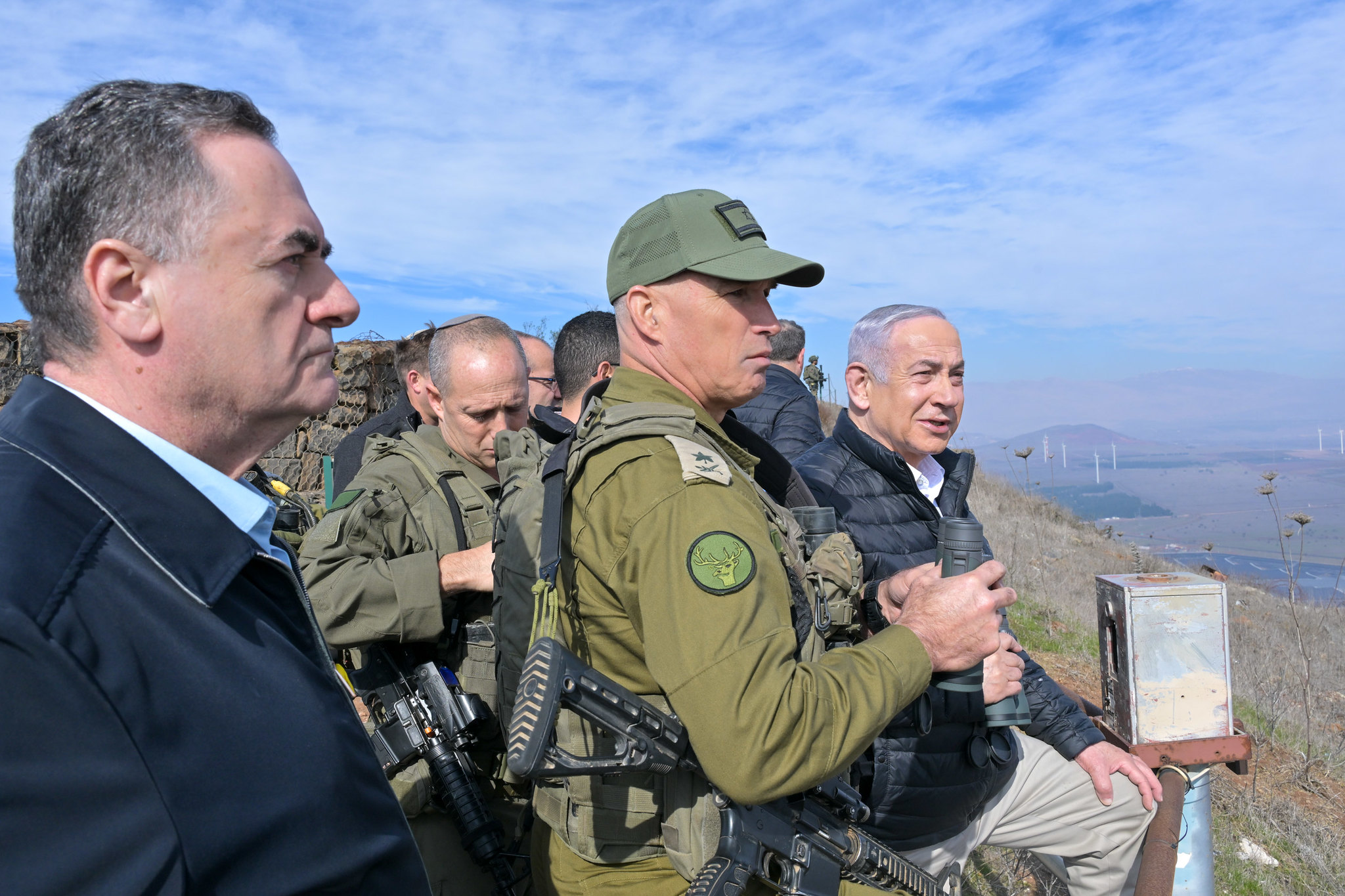Australia/Israel Review
With Assad gone, what’s next?
Dec 18, 2024 | Ehud Yaari

The fall of the Assad regime is the greatest event of the war over the past year, although the Syrian army did not itself take part in the fighting. The “ring of fire” that Iran had planned to establish around Israel has been dismantled with the loss of the single most important link in the chain, Syria. Hezbollah is now locked in an isolated enclave in south and west Lebanon. Hamas is transformed from a well-equipped terrorist army based in tunnels into a scattered, armed underground. The multitude of Iranian-sponsored Iraqi Popular Mobilisation Units proved to be ineffective in spite of their bombastic rhetoric. Iran’s Islamic Revolutionary Guard Corps opted to avoid getting into direct continuous exchanges of blows with Israel, after having a taste of Israel’s attack capabilities. Assad’s downfall was made possible by a year of Israeli strikes on Iranian targets, military industries and air defence systems in Syria.
In spite of the awkward manner in which Israeli Prime Minister Binyamin Netanyahu has managed these campaigns – slowing them down and losing momentum at times – the Israel Defence Forces, with its superb air force, has prevailed. Having defeated its enemies, Israel will be looked upon differently by friends and foes alike.
A lunatic megalomaniac, Yahya Sinwar, dreamt of changing the geo-strategic map of the Middle East via a brutal surprise attack on October 7 of last year. He succeeded in his mission, but the region is changing in ways totally different from what he and Hamas prayed for. Yes, Israel is in great pain and divided at home. But for many years to come, its rivals will not dare to test its power.
One of the most important commentators in Teheran, Suheil Karimi, has warned on Iranian television that “without Assad, ultimately there will be no Hezbollah.” Weakened, confused and decapitated, Hezbollah is bound to lose much of its political clout inside Lebanon. Many in the Land of Cedars will seek to stop the remnants of Hezbollah’s leadership from casting a veto over the election of a new president and the composition of a new government. They might also seek to prevent Hezbollah from rearming.
Israel’s mistakes in Syria
A decade ago, Israel could have helped to bring about the collapse of the Assad regime, by assisting the different rebel factions then attacking Damascus. But unnecessary hesitations and an aversion to taking calculated risks prevented the government from helping the rebels. In September 2015, the Russian air force appeared on the scene and, together with Lebanese Hezbollah troops and Iranian Quds Force officers, managed to suppress the insurgency. Just recently, Prime Minister Netanyahu was on the verge of committing a major blunder by trying to lobby the US Administration to offer sanctions relief to Assad in the hope that he would prevent arms shipments going to Hezbollah in Lebanon. Luckily, this effort was overtaken by events – the lightning success of the insurgency.

Israeli PM Netanyahu and Defence Minister Yisrael Katz visit near the Israel-Syria border with Northern Command Commander Uri Gordin and Division 210 Commander Brigadier General Uri Plai (Image: Kobi Gideon, GPO)
Israeli intelligence agencies were blind to what was going on inside Syria north of the immediate vicinity of the Golan Heights. Israel was in the dark about the intensive preparations for an offensive by Muhammad al-Jolani in Idlib province. Israel was also unaware of the degree of support he was getting from Turkey. Moreover, Israeli intelligence failed to understand that Syrian army divisions were a house of cards ready to fall when the first shot was fired. Finally, Israel did not grasp how international sanctions had made Syria’s economic situation so desperate – 27,000 Syrian lira to one US dollar! Assad was relying on soldiers who were bankrupt and millions of citizens sunk in poverty and misery.
Al-Jolani did not plan to topple the regime at this time. He had obtained a green light from Turkish President Recep Tayyip Erdogan to expand the territory he was controlling in the northwestern province of Idlib and to seize the M4 highway running nearby. However, when the rebels realised that battalion after battalion of the Syrian Army’s 25th division defending Aleppo were taking off their uniforms and fleeing, a decision was taken to race to the capital.
Who are the Syrian Rebels?
The rebels are a mosaic of armed militias with different shades of Islamist beliefs.
They include former al-Qaeda members like al-Jolani himself (who has now started wearing a suit and a tie). They include bands of armed villagers and criminal gangs. It will be difficult to establish a decent central government to replace Assad’s corrupt administration. It will take a long time before Syria has a stable compromise coalition among the plethora of players. It’s safe to assume that the Kurds will maintain autonomous control over a quarter of Syria’s territory. The Alawites, removed from power, may try to carve out a separate administration along the coast around Latakia and Tartus, probably with Russian support.
So far, al-Jolani and his allies are not talking about imposing Sharia law on Syria in pursuit of a jihadist agenda. Rather, they stress the need to ultimately bring home millions of Syrian refugees, mainly from Turkey, Jordan and Lebanon and then probably from Western Europe. Al-Jolani has also issued assurances to non-Sunni religious minorities in Syria – Shi’ites, Christians, Ismailis and others – that they will not be discriminated against. He promised Jordan and Lebanon that the new Syria will not become a threat to them.
What should Israel do now?
Beyond celebrating the demise of the 54-year-old Assad family regime in Syria, Israel should contemplate some immediate steps.
Military deployments along the Golan Heights border with Syria have taken place, but should not reach a point where they are seen on the other side of the border as a menace. There is no reason to fear the rebel factions in the adjacent Dara’a and Quneitra provinces. Many of their commanders were assisted by Israel for years before they had to accept a deal with Assad in 2018. Some of those commanders regularly met Israeli officers in Tiberias and in other places. Many villages in this region have benefited in the past decade from Israel’s “Good Neighbour” operation, which provided humanitarian aid on a large scale, and many were treated in a field hospital established for them on the Israeli side of the border. Israel should invest in cultivating relations with the local activists, offer support and appear helpful in the coming negotiations on “the Day After in Syria” initiated by UN envoy Geir Pedersen.
Humanitarian assistance to the half-million Syrian Druze in the province of Sweida, 100 kilometres east of the Golan. During the past year, the Druze have embarked on a non-armed revolt against Assad and they need to be strengthened in order to ensure their role in the future. Israel can drop assistance from the air, but it would be more effective to open a “humanitarian corridor”, either from the Golan – as part of a renewed “Good Neighbour” operation – or through a three-kilometre corridor from the Jordanian border to the southern-most Druze village, al-Anat. From there, trucks could reach the provincial capital of Sweida in an hour or so.
Political advocacy with the incoming Trump Administration to maintain the small American military presence (900 soldiers) in the Kurdish territory of northeast Syria beyond the Euphrates River and in the Tanf enclave where the Syrian, Jordanian and Iraqi borders meet. This minimal presence is essential to keeping the Kurdish administration and military forces in place as a buffer against Iranian attempts to gain re-entry into Syria. Their presence also bolsters the US’s ability to steer the negotiations over a new constitution and government in a sensible direction.
Diplomatic fence-mending with Turkey’s Erdogan as the war winds down. Turkey has managed to have the upper hand in its competition with Iran over influence in Syria. Rapprochement with Erdogan would be complicated, yet not impossible. There have been up-and-down cycles in recent years between Israel and Turkey. The Trump team could encourage such dialogue in order to advance collaboration of moderate Sunni Arab states with both Turkey and Israel as a solid barrier to fend off any Iranian aspirations to regain predominance in the Levant.






